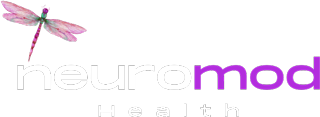Blog
Does TMS Hurt? Common Myths About the Procedure
- August 25, 2025
-
NeuroMod Health

For parents seeking safe and effective treatments for their child’s depression, Transcranial Magnetic Stimulation (TMS) often raises questions. One of the most common concerns is: Does TMS hurt? This question is understandable, especially when the treatment involves stimulating the brain. However, much of the hesitation comes from misconceptions.
At NeuroMod Health, we believe in empowering families with accurate, science-based information. Let’s separate fact from fiction about TMS and explain what parents can expect when considering this brain therapy for teen depression approved by FDA.
Recent Posts
Understanding TMS and Why It’s Used
TMS is a non-invasive brain therapy that uses magnetic pulses to stimulate nerve cells in areas of the brain involved in mood regulation. The treatment has been FDA-approved since 2008 for adults and has since expanded for use in adolescents with treatment-resistant depression.
Unlike medications that affect the whole body, TMS works locally, targeting only specific brain regions. This precision makes it a valuable option for teens who may not have responded to traditional antidepressants or who experience intolerable side effects from medication.
According to the National Institute of Mental Health, nearly 3 million adolescents in the U.S. experienced at least one major depressive episode in 2023. This statistic underscores the importance of safe, effective, and accessible therapies like TMS.
Myth 1: TMS Is Painful
One of the biggest myths surrounding TMS is that the procedure is painful. In reality, most patients describe the sensation as a tapping or clicking feeling on the scalp, similar to the snap of a rubber band.
Discomfort, if experienced, is usually mild and temporary, often diminishing after the first few sessions. Some patients may experience scalp sensitivity, but it rarely interferes with completing the treatment. The majority of teens adapt quickly, finding TMS far more tolerable than they expected.
At NeuroMod Health https://neuromodhealth.com/tms-therapy, treatments are administered in a supportive, calming environment, ensuring that each patient feels safe and comfortable throughout the process.
Myth 2: TMS Involves Shocks or Invasive Surgery
Another misconception is that TMS involves electrical shocks or surgery. This is simply not true.
TMS is non-invasive—there are no needles, no incisions, and no anesthesia required. The technology uses magnetic pulses, not electricity, to activate neurons. Teens remain awake and alert during the session and can return to normal activities immediately afterward.
External organizations like the Mayo Clinic confirm that TMS is not only non-invasive but also safe when performed under the guidance of trained clinicians.
Myth 3: TMS Has Dangerous Side Effects
Parents often worry about potential side effects, particularly when it comes to brain-based therapies. Fortunately, TMS is considered very safe, with the most common side effects being mild scalp discomfort or headache.
Unlike many antidepressant medications, TMS does not cause weight gain, fatigue, or emotional blunting. Serious side effects, such as seizures, are extremely rare—less than 0.1% according to research published by the National Library of Medicine.
At NeuroMod Health, our expert team carefully screens every patient to ensure safety and monitors progress throughout treatment.
What Parents Should Expect from TMS
When exploring brain therapy for teen depression approved by FDA, parents naturally want reassurance about what the treatment process looks like.
A typical TMS course includes:
- Short, daily sessions: Each session lasts about 20–40 minutes, five days per week, over several weeks. Teens can return to school or extracurricular activities immediately afterward.
- A comfortable, supervised setting: Sessions take place in a supportive outpatient environment where teens are closely monitored by trained clinicians.
- Gradual improvements in mood: Many teens start noticing positive changes after the first two to three weeks of treatment, though experiences vary.
At NeuroMod Health, parents can learn more about what to expect during the initial consultation and how treatment is tailored to each teen’s unique needs.
Why Families Choose NeuroMod Health
Families in and around Willowbrook, IL, trust NeuroMod Health https://neuromodhealth.com for compassionate, individualized care. Located at 555 Plainfield Rd, Ste F Unit 1, Willowbrook, IL 60527, our clinic combines advanced technology with a patient-centered approach.
We understand that choosing a treatment for your teen is never easy. That’s why we prioritize transparency, safety, and communication every step of the way.
Taking the Next Step
If you’ve been wondering whether TMS is right for your child, it helps to begin with accurate information rather than myths. TMS is not painful, not invasive, and not unsafe—it is a proven, brain therapy for teen depression approved by FDA that offers hope for families facing treatment-resistant depression.
To learn more about how TMS can help your teen, visit NeuroMod Health https://neuromodhealth.com or contact us today. Together, we can explore safe, effective solutions that bring lasting relief and brighter futures.



